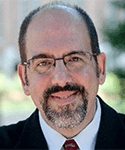Churches have climbed on the digital bandwagon in the past decade. Computers and internet connections are no longer considered luxuries, and most churches have a web presence (or at least feel like they should have one).
Today, the pervasiveness of portable computing combined with the proliferation of creative “apps” provides yet another opportunity to expand the ministry of the church. The past two years have seen a rapid acceleration in the adoption of portable computing by the average person. This will inevitably prompt changes by church leaders.
One such innovation could be closer to us than we think.
I am impressed with the GPS capabilities expanding to cell phones, in particular Apple’s iPhone and Motorola’s new Droid powered by Google’s Android platform. A basic mantra among entrepreneurs is “Location, Location, Location,” and the importance of “location” is now being harnessed by the latest generation of smartphones. GPS embedded in these phones takes advantage of satellite technology so that your device always "knows" where you are. The Apple iPhone already has remarkable apps that take advantage of location specifics so that users can find local restaurants, movie theaters, and gas stations -- all based on where one happens to be at that moment.
We can't be too far from inventive congregational leaders creating applications that take advantage of the GPS in these devices. For example, congregations could allow users to discover church services and other congregational events. GPS devices could allow people to connect automatically with ministry offerings in regions by city, zip code, or mile-radius. I can imagine a day soon when I visit a city for a conference and can look up services and events (perhaps indexed by religious orientation) and see what is happening religiously in the area -- whether it starts in 12 minutes or in 2 days time.
This smartphone technology does not have to be tailored only for new visitors. New features can expand the liturgical experience for the faithful. Religious organizations could pre-program mobile phone events to begin as people arrive to services. Because of GPS capabilities, these can automatically begin when a person comes within "range" of the congregation.
Users could elect to connect to their congregations either by pre-set time (20 minutes before services or events) or by pre-set radius (within 1 mile of the meeting place) and have devotional music play as a "pre-event" or "pre-service" preparation. Prayers could be read aloud. Readings from scripture or church history could be included. Announcements could also be programmed to play for users either before or after events.
For study groups that require advance reading, these apps could remind members of their assignment and allow people to download the required reading right to their phones. Or the device could have selections read aloud to them using speech-to-text software as they are traveling.
All of these features could be hyperlinked for more information. They could also include a "forward link" so that people could invite friends, neighbors, and co-workers to participate. People who have moved away for work or school could also keep in touch with their church, especially if such services are complemented with downloadable video streams and continued interactive features like "comment" or "chat" extras.
Inventive programmers in specific congregations could do this right now if they had the motivation and encouragement from their pastors to do it. Perhaps the initiative of larger networks of denominations or parachurch support organizations could commission programmers to create these apps. Seminaries could design apps that extend and accentuate offerings to students and alumni as a way to extend their ministry.
However it happens, I guarantee that if such apps are created, they will be implemented by thousands of people overnight -- whether they are members of local churches or not.
In all of this, the point is to discover innovative ways to expand land-based local experience through online global connections.
In short, the wi-fi church of the future is just around the corner. The emerging electronic capacities of portable computing and the overwhelming presence of these devices in the consumer world will soon be co-opted by religious organizations.
It only remains for the first set of innovators to create the apps that take advantage of these capacities in religiously creative ways.
Gerardo Marti is L. Richardson King Assistant Professor of Sociology at Davidson College in Davidson, NC, and is author of "Hollywood Faith: Holiness, Prosperity, and Ambition in a Los Angeles Church" and "A Mosaic of Believers: Diversity and Innovation in a Multiethnic Church."













